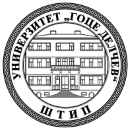REGISTRATION OF CHURCHES AND RELIGIOUS SOCIETIES, REFUSAL OF REGISTRATION AND CANCELLATION OF REGISTRATION IN CONNECTION WITH THE FIGHT AGAINST RADICALISM AND EXTREMISM

Abstract: Churches and religious societies play a special role in every society. Historical development, the religious-demographic situation in the country and religious elites are the determining factors of their influence in the society. They can be a peacemaker, mediator, as well as a place of inclination for radicalization. The radicalization of political culture in liberal-democratic states brings about the retreat of humanism and the rise of collective egoism, which can manifest itself (not only) as nationalism or extremism. The causes of these negative phenomena are both social changes resulting from ever-deepening globalization (eg liberalization of foreign trade, increased migration, greater openness of state borders, expansion of difficult to regulate information technologies) and the inability of political elites to respond to these changes. The aim of this paper is not to seek solutions in the field of criminal law, nor to respond to the question of how to construct and implement criminal policy so that it can effectively curb extremist political forces and speeches, but not undermine the free competition of political forces. We seek to expand the consideration of the described problem from the field of criminal law to a wider area of public law, but primarily to the field of constitutional and administrative law. The institute of registration of churches and religious communities can be one of the tools of the state to protect society from religious extremism. However, the degree and manner in which the state uses the registration, recognition of churches and religious societies significantly affects the issue of religious freedom in its essence. We deal with the fragile border on which the state balances in its efforts to protect society and individuals by refusing or revoking church registration while guaranteeing freedom of religion and the autonomy of churches. Keywords: State, Religion, Churches, Religious societies, Registration, Extremism, Radicalism
